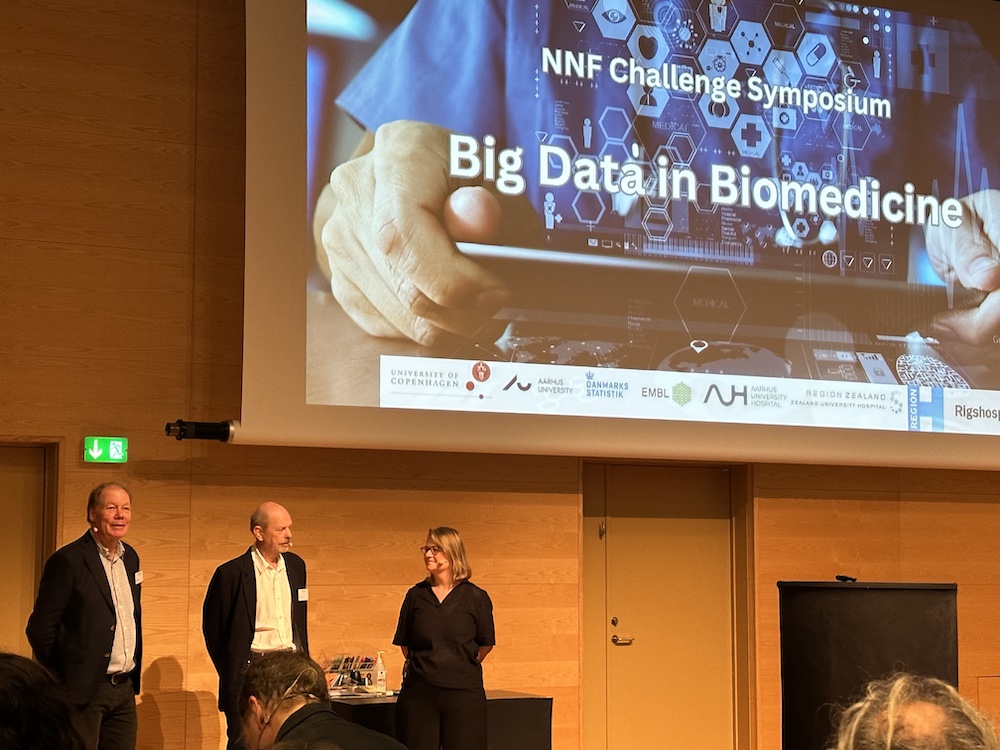
The Big Data in Biomedicine Symposium
A scientific symposium between three major NNF-funded Challenge projects (link to NNF) took place in Copenhagen in September 2023 to exchange scientific results, methods, and knowledge and to develop new ideas for future collaboration.
Søren Brunak, professor and director at the Novo Nordisk Foundation Center for Protein Research at University of Copenhagen (left in the picture) explained how his group is working with big life-course data to understand disease initiation and progression in Diabetes and its complications.
Professor Majken Karoline Jensen (right in the picture) from University of Copenhagen, Department of Public Health explained the three tracks of her big data project ‘Harnessing the power of big data to address the societal challenges of aging’ where they research the issue both on a population level (Noise, air), in biospecimens like blood and tissue and finally at the molecular level in the systems biology track – all paired with data from registers.
Professor Torben Sigsgaard from the Big Data Centre for Environment and Health, Bertha, at Aarhus University, explained their research looks at how the physical, social, indoor, urban, and virtual environment affects our health.
The three Challenge projects in a slide each:
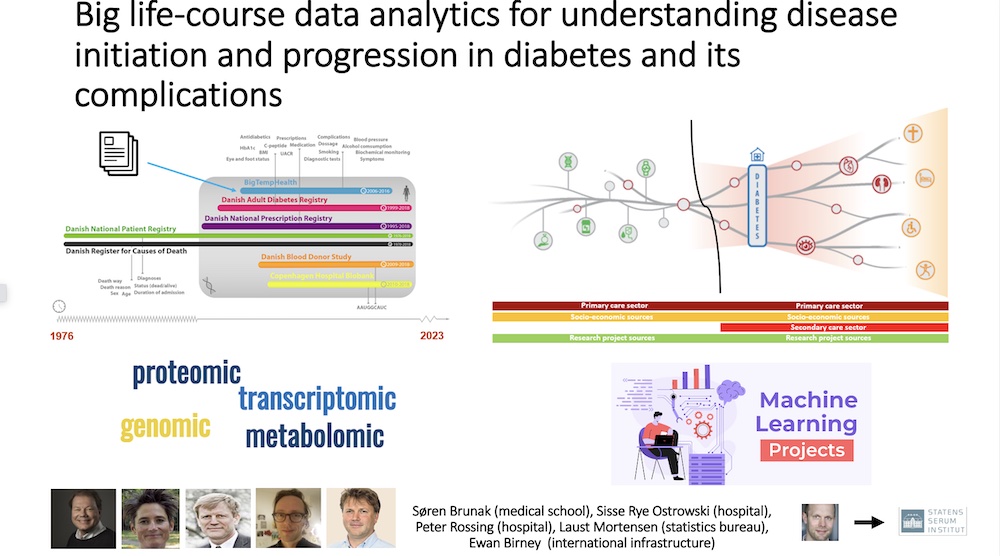
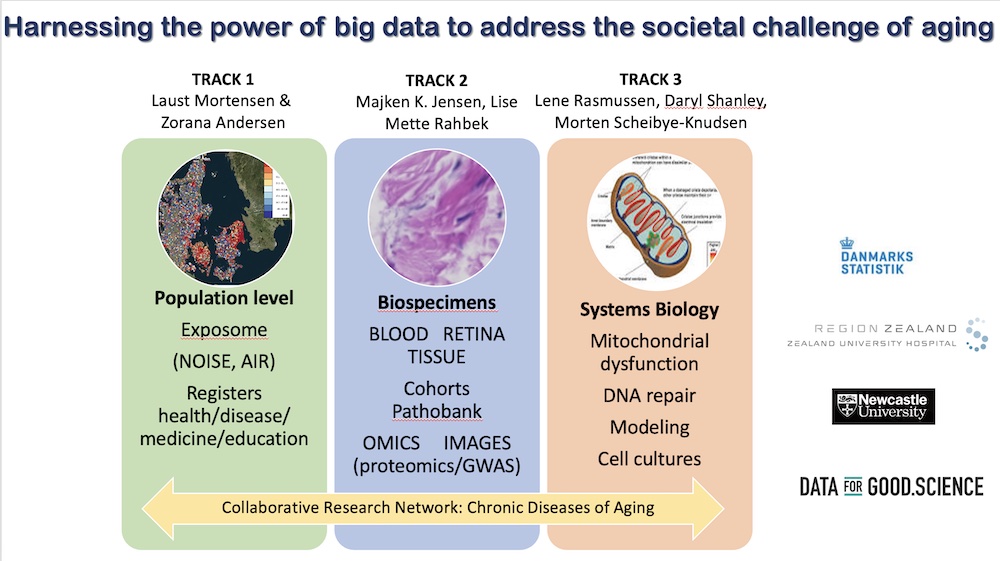
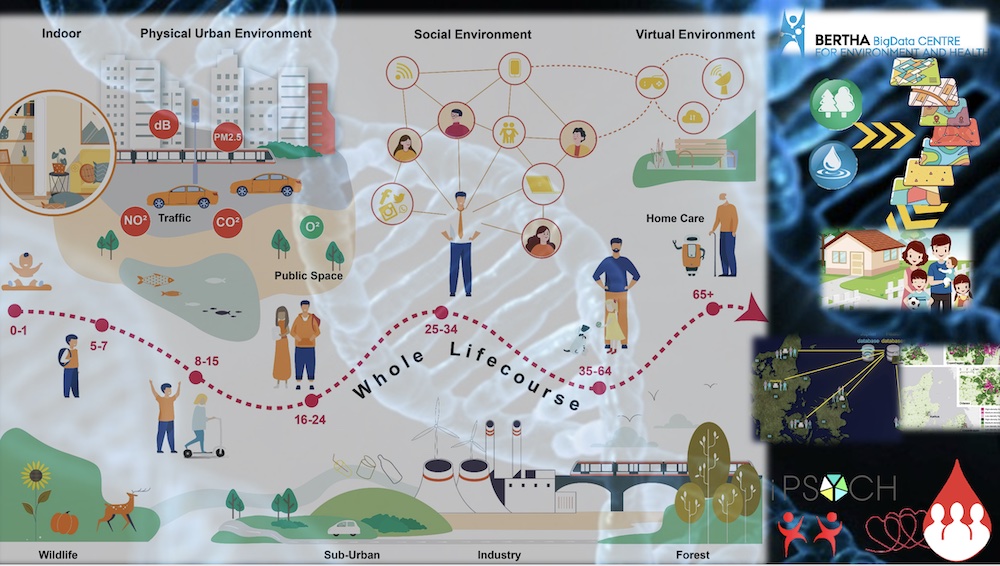
With a lot of speakers from outside and inside the project, breaks, and diner for networking, many results and ideas were exchanged – and this laid the ground for the second day where the younger scientists working within the 3 Challenge projects worked together on developing future ideas that cut across the 3 grants. In a workshop, they generated 16 ideas altogether and boiled it down to 5 ideas which were presented to the professors in a short pitch.
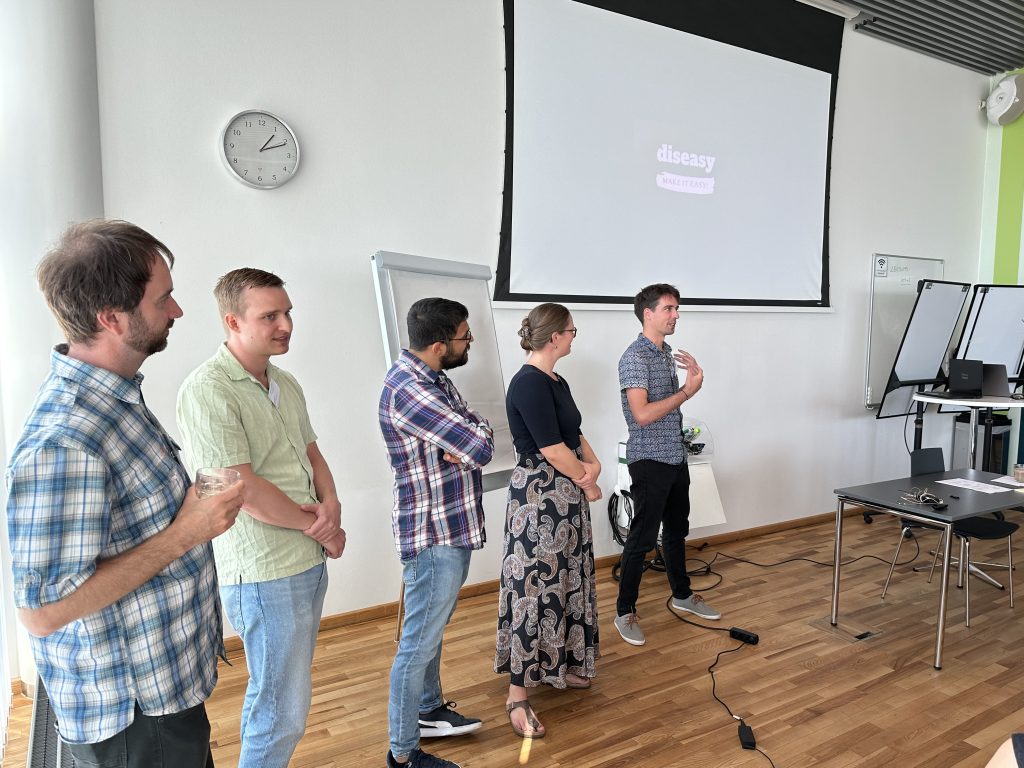
The five ideas were:
1. A knowledge platform for standardized ways of defining health data outcomes using registers (“Diseasy”)
2. How dogs and cats affect our environment and health outcomes (Fury Friends Foster Family Health)
3. The long-term health effects of commuting metro and cycle – adding several registers on top of the existing infrastructure in all 3 challenge grants to include transportation, air pollution, microbial data etc.
4. The psychological health after working from home
5. Do opposites attract or are people who get married genetically similar?
More pictures from the day:
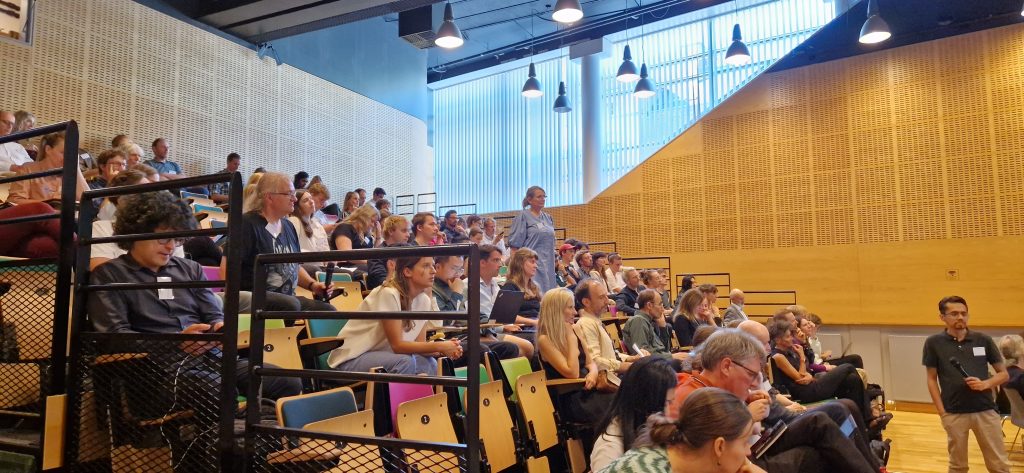
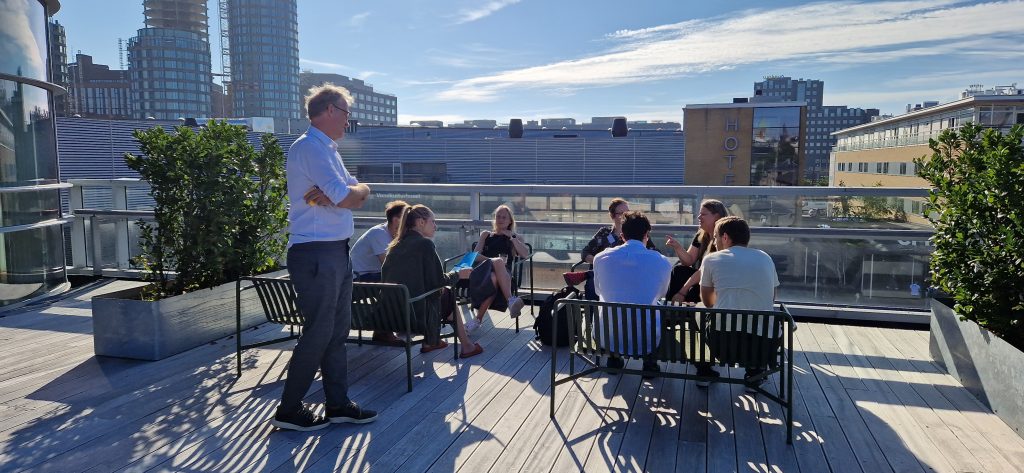
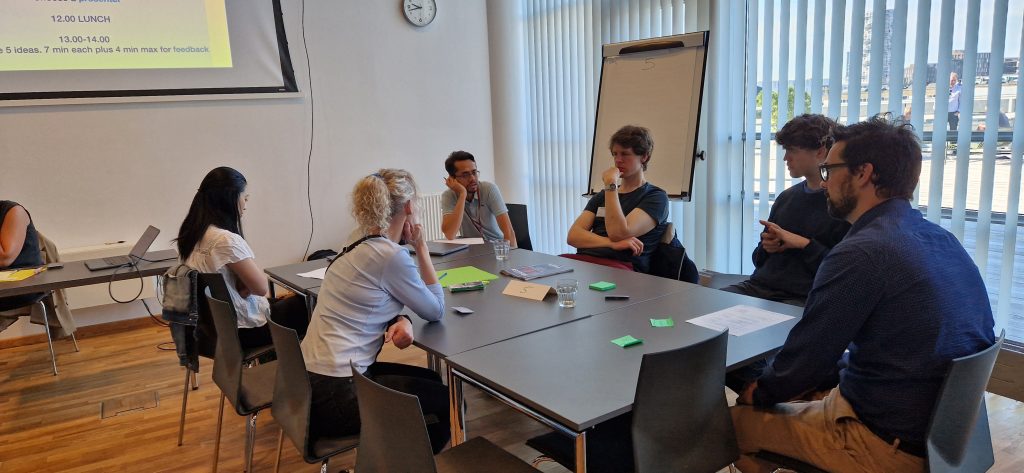

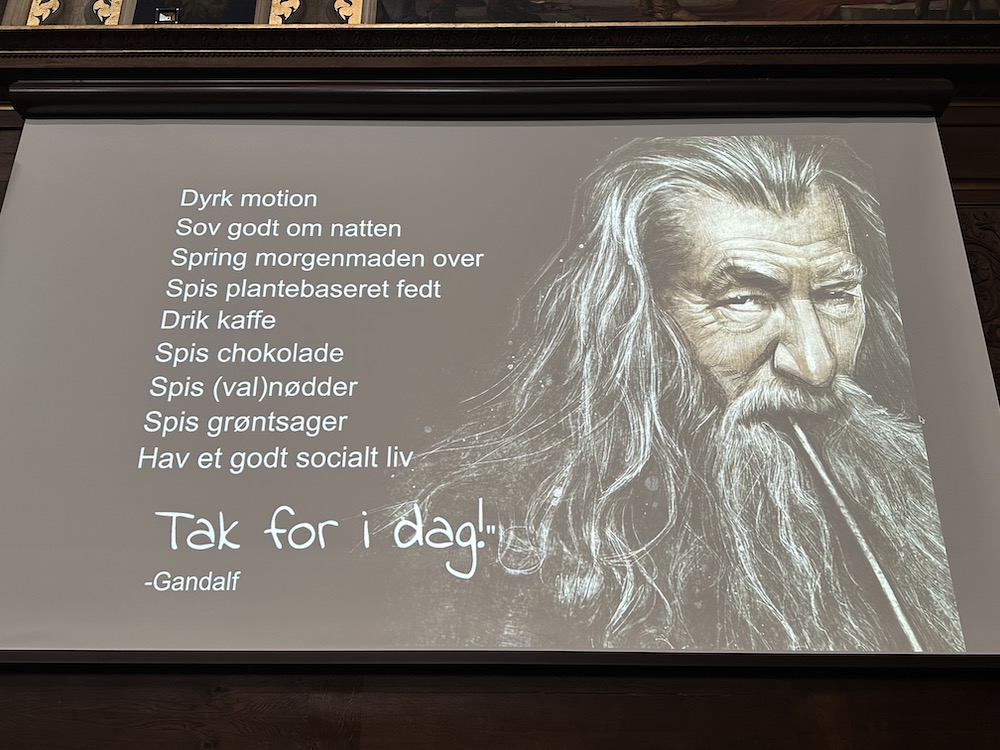
What other dimensions of our environment, apart from physical and social aspects, could significantly influence our health, as suggested by the Big Data Centre for Environment and Health?
Tel U